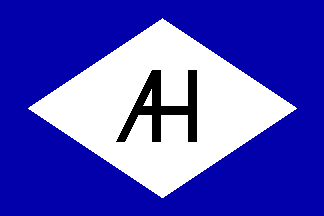|
Alfred
Holt & Co. (Blue Funnel Line) (Est. 1865) |
|
|
| RETURN TO THE LOBBY
THE OCEAN LINER VIRTUAL MUSEUM |
|
Alfred and Philip Holt
established the
Blue Funnel Line in 1865 to run steamers, equipped with Alfred's own
design of
compound engines, from Liverpool to In the 1870s the Holts
developed the
service further with the assistance of Butterfield and Swire, agents in
Blue Funnel continued to
expand, for
example, into Sumatra and the tobacco trade, and later a Dutch
subsidiary was
established to run a direct service from By 1911 Blue Funnel Line had
acquired
ownership of numerous previous competitors and owned between sixty and
seventy
ships. The First World Ward did, however, cost Blue Funnel twelve
vessels and
the 1920s witnessed such reduced demand for the The Second World War proved
extremely
costly for the Blue Funnel Line, with a loss of forty-one ships.
Peacetime
services utilised Liberty Ships for many sailings until A-class
replacements
were delivered between 1946 and 1953. The Blue Funnel Line
maintained its
dominant position in Overseas Containers Ltd (OCL) was the
largest British container consortium and was formed in 1966 by British
and Commonwealth Shipping Group, Furness Withy Group, Ocean Transport
and Trading Ltd (Alfred Holt Group) and the P&O Group. The aim of
the consortium was to develop and operate container services on those
trade routes in which its partners operated, with the intention of
preserving a major British interest in these trades. The United
Kingdom/Australia trade was the first to be containerised in 1969 and
this was followed by the Far East trade. These will soon be followed by
the containerisation of the New Zealand trade and the United
Kingdom/Europe/South African trade as well as three trades in the
Pacific basin. In 1986 all the partners were bought out by
P&O Group and the operation was renamed P&O Containers Ltd. In
1996 this was merged with Nedlloyd Line and formed P&O Nedlloyd.
This was later transformed into a stand alone company as Royal P&O
Nedlloyd and finally in 2005 was bought entirely by the A.P.
Moller-Maersk Group and merged with Maersk Sealand to form Maersk
Line. OCL began operations in 1969. Within a few years its Australian service was showing a profit, and it had joined a still larger international consortium to containerize the Europe-Far East route. At this point in the early 1970s, Ocean Steamship Co.'s stake in OCL grew to 49 percent, and its Blue Funnel fleet became largely superfluous and this famous company was discontinued. Thus Blue Funnel was another
famous British shipping company that disappeared as a result of the
container revolution in the late 1960s and early 1970s. It was the end
of an era as traditional shipping gave way to containerisation. |
